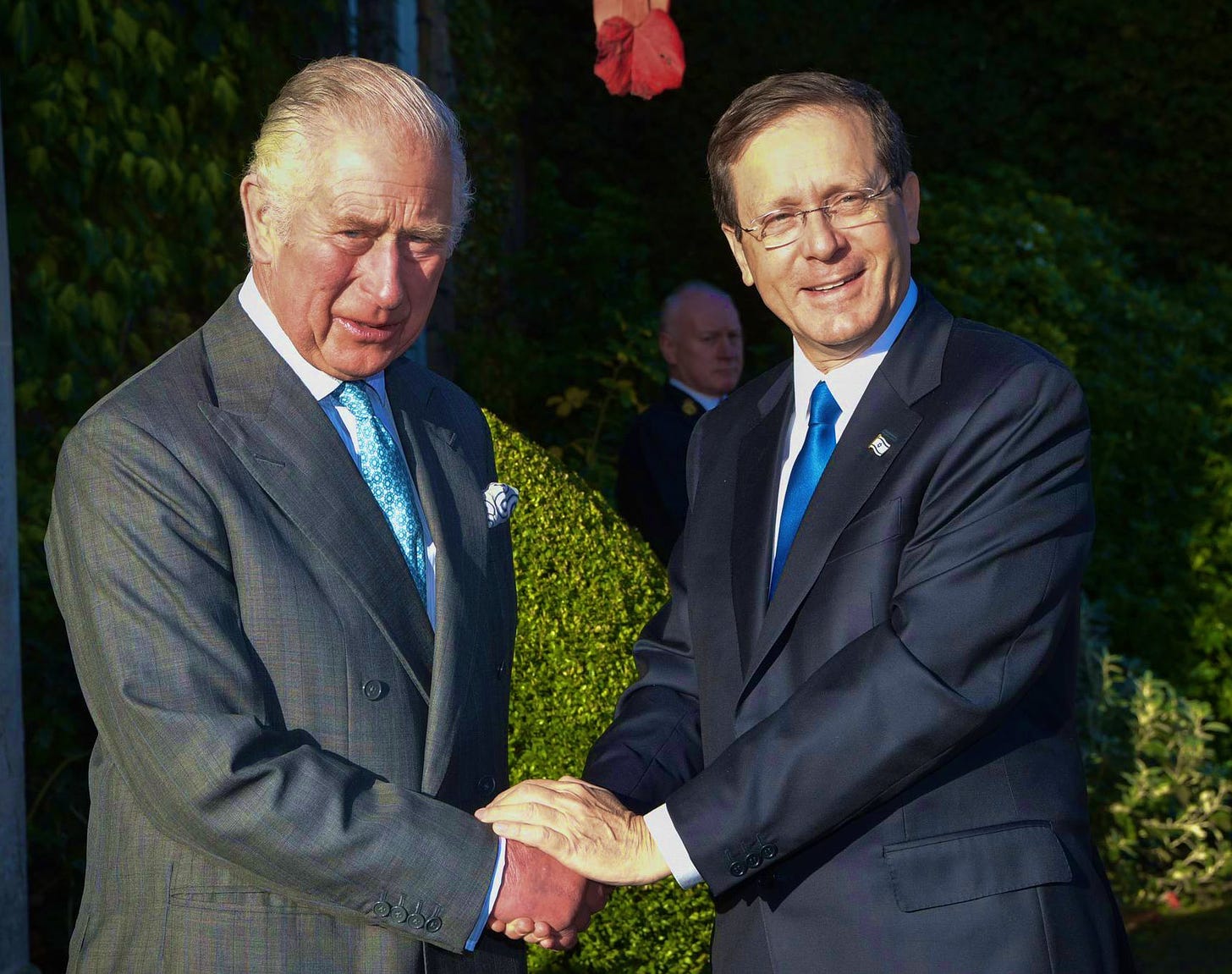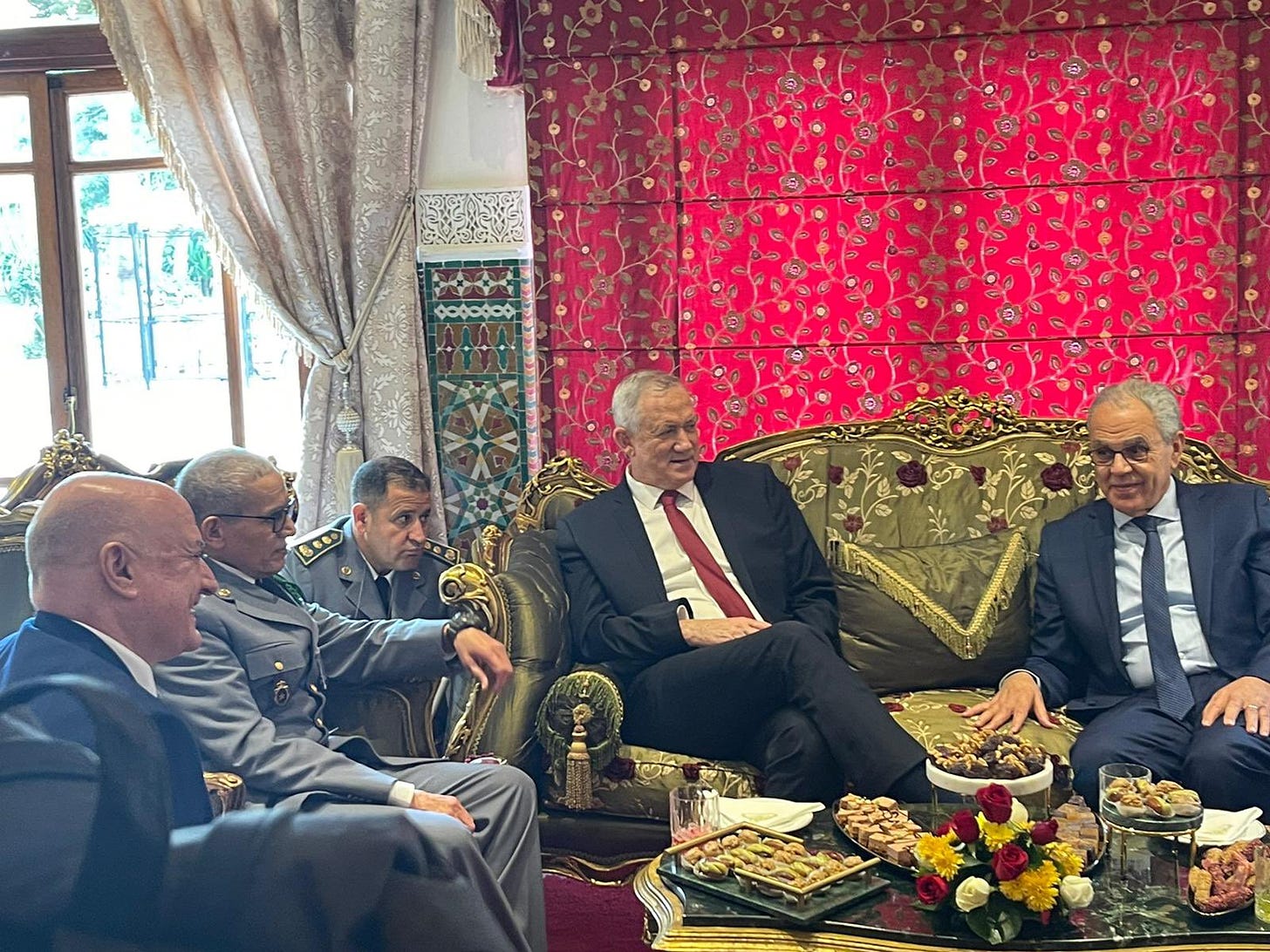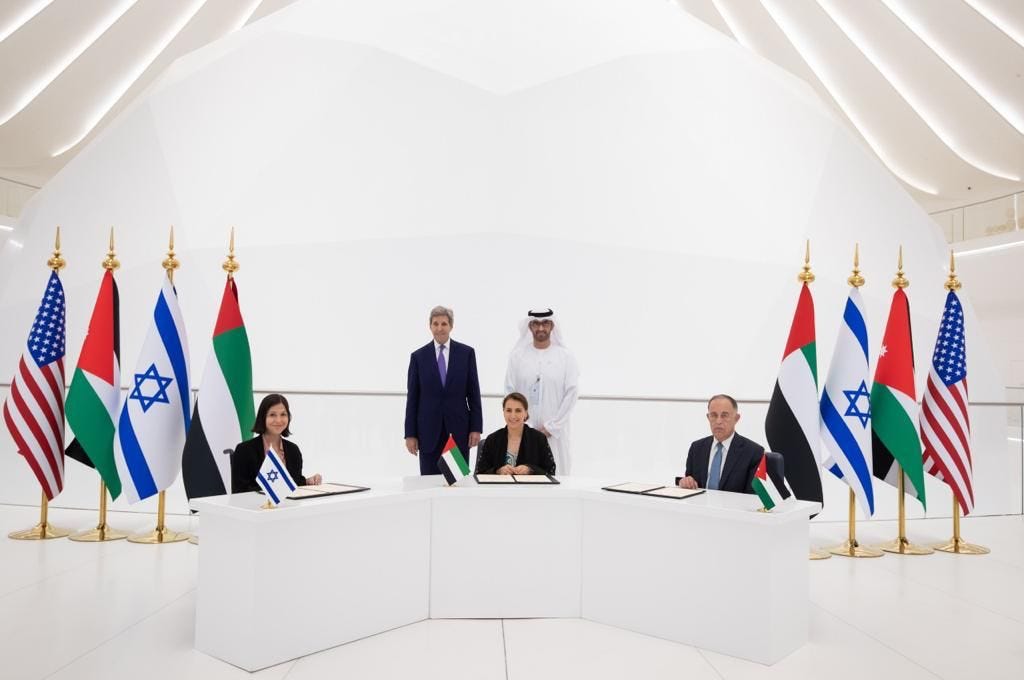Israel Update Week Ending November 26
Terror Attack, Israel Takes Action to Protect Against New Covid Variant, Water/Electricity Agreement, NSO in more trouble and more
HOMELAND SECURITY
The week began with a terror attack in Jerusalem near the Western Wall. The assault took the life of young South African immigrant Eli Kay, who was killed by a seemingly unlikely terrorist — i.e. a 39-year-old married teacher, married, with three kids. While the terrorist was a member of Hamas, it's not clear whether this aggression was the spontaneous act of a lone wolf, or an initiative instigated directly by Hamas. According to the Shin Bet, Israeli security forces thwarted a major Hamas terror attack by arresting over 50 Hamas members in the West Bank. Those arrests reportedly began in September.
In a surprise move, the Defense and Finance Ministers announced that the pay for compulsory service soldiers would increase by 50% next year. This raise constitutes the first pay increase soldiers have received since 2017 and is long overdue. The boost will bring financial compensation of combat troops to NIS 2,463/per month, while non-combat soldiers are scheduled to receive NIS 1,236/month. In three years, the salary of combat troops will rise to NIS 3,048/per month, approximately $1,000 at the current exchange rates. The overall price tag of this pay upgrade is NIS 900 million, which will be paid partially from the Defense budget, and in part from funds provided by the Treasury.
FOREIGN AFFAIRS
Reports have surfaced that Israel struck Iranian targets in Syria once again this past week.
Israeli Diplomacy continues to operate on all cylinders. This week, President Herzog visited Great Britain and met with Prime Minister Johnson. Coincidently, Great Britain and Australia ruled Hamas to be a terror organization, and as such, any ties with the organization violate the law.
Defense Minister Gantz made a public visit to Morocco, where he met with top governmental officials, and the leadership of the Moroccan armed forces. Furthermore, Gantz signed a Defense Cooperation Agreement with Morocco. While Israel and Morocco have been secretly cooperating for decades, the very public nature of this visit underscores the depth of the change that has taken place in the Middle East over the course of the past few years.
Finally, this week a landmark accord was signed between Israel, Jordan, and the UAE, in which US climate envoy John Kerry participated. Under the agreement, a vast solar field will be built by the UAE, in Jordan. The new Jordanian plant will sell electricity to Israel, and in return, Israel will build a desalination plant on the coast, which will supply Jordan with water. These deepening ties will help all parties.
In addition, US Ambassador to the UN Linda Thomas-Greenfield paid an official visit to Israel this past week; a visit which, by all accounts, went very well.
Israelis are still trying to get used to the fact that significant foreign policy advances can be achieved as the result of a group effort, and not by virtue of the enterprise of one man alone, as was the case during the Netanyahu period.
Next week — after a five-month delay— talks in Vienna are planned to resume between Iran and the signatories of the original JCOPA accord. Former Israeli security officials, including Former Defense Minister Yaalon, and Former IDF Chief of Staff Eisenkott, have joined a chorus of public voices who stated that withdrawal from the JCOPA was a disaster. Vigorously pushing for the demise of the JCPOA will no doubt go down in history as one of Netanyahu’s worst decisions. Of course, no one has said that agreement was a panacea, but since Trump’s “maximum pressure” did not work, Iran has continued moving ahead with its nuclear program unimpeded. Next week, we will learn if the Iranian government has any interest in returning to the agreement. I predict the Iranians will transmit a sufficiently conciliatory demeanor to keep the talks going, but will not agree to any of the new conditions deemed essential to the US or Israel.
COVID—19
After plateauing for a few weeks, Israel’s new daily infection numbers have turned sharply upward. Nearly half of those infected have been school-age children. Israel began vaccinating children this week. However, the public has been less than enthusiastic about the initiative, and the current infection numbers are not promising. Furthermore, there are almost a million adults who have not yet gotten their booster shots. With few COVID restrictions currently in place, and people choosing to ignore existing regulations, I fear we may be in for a fifth COVID wave. The only good news on this front is that the number of seriously ill patients remains very low — although it is important to note that this statistic is a lagging indicator.
Today, the Ministry of Health announced that the first four cases of the new South African variant (a variant that may be resistant to vaccines) had been discovered in Israel. The government, (which just last week held an exercise to practice the response to a new, more deadly variant), has taken immediate action. Bennett conducted a press conference at 2:30 PM today (Friday), in which he announced that all of Africa, with the exception of North Africa, is now “Red”. Anyone who came back from Africa during the last week has been asked to go for an additional PCR test, and remain in isolation. Moreover, the army has been tasked with trying to find any isolation violators. Israel has begun testing sewage to discover if there are other unknown cases of the variant. Others restrictions are expected to be put in place Saturday night, when the Corona cabinet is scheduled to meet. Bennetts' main message was that it is better to overreact and move fast, than to wait until it's too late.
On the positive side, Israeli company Bonus BioGroup announced that Phase 2 trials of its new treatment reduced death in severe COVID cases by 70%. Due to the dramatic nature of the Phase 2 results, Bonus BioGroup plans to ask for immediate emergency usage authorization for this drug. As opposed to the Pfizer medication that must to be taken before someone is seriously ill, the Bonus BioGroup drug is administered solely to seriously ill patients.
NETANYAHU TRIAL
The trial of former Prime Minister Netanyahu made big news this week, when Netanyahu's former close confidant — turned state witness— testified to the level of control Netanyahu held over the Walla news sites, and the quid pro that Walla owners hoped to get. It was clear from the testimony that this was not the normal “give and take” between politicians who hope to get positive coverage, and media who wish for some favors (usually in terms of access, or stories). This week, a friend who had consistently downplayed the importance of Case 4000, insisting Case 1000 (alleging acceptance of presents) was considerably more important, changed his mind after Hefetz's testimony.
ECONOMY
NSO, the Israeli cyber company known for its Pegasus spyware has found itself in deep trouble in the past few weeks. In November 2019, Facebook sued NSO for hacking into WhatApp. Last month, the US government announced that NSO and four other firms constitute a danger to US security and prohibited American companies from working with or selling to them. The week, Moody’s rating agency warned that NSO might not be able to continue as a working company due to its debt (incurred in a leveraged buyout). Lastly, Apple announced a suit against NSO, and has requested an injunction against the company from using Apple products. Beyond the legal and financial threats that the company faces, NSO’s greatest challenge is to continue to attract the top talent it is dependent upon. In an Israeli marketplace, where top talent leaving the army receive many offers, it will be more and more difficult to persuade prospective employees to become associated with NSO.
Moon Active raised $300 million, at a value of $5 billion. The $300 million will go to existing investors and employees. The company, which develops games, expects revenue of $1.5 billion, most of it from one very successful game — “Coin Master”.
Mindspace, the global flex office provider, secured a funding of $72 million. The investment round is intended to support the continuation of the company's growth and its further expansion in Europe, the United States, and Israel. The latest round was led by Harel Insurance Investments, and Financial Services Ltd., More Provident Funds, Arkin Holdings and existing investors. Existing investors include: Yoav Harlap, Kobi Rogovin and Globalworth.
Mindspace, founded in 2014 by Dan Zakai and Yotam Alroy, currently operates 32 branches in 17 cities in seven countries, spread over 100,000 square meters (over 1 million sq. ft.). In the past year alone, Mindspace successfully launched new branches in London, Tel Aviv, Philadelphia, as well as, a new hub and spoke location outside Tel Aviv, at Yakum.
XM cyber based in Herzilya was acquired for $700 million, by the German Schwarz group. The company which was established by the former head of the Mossad Tamir, together with other former intelligence officers, was founded five years ago.







